Clancy Tucker's Blog, page 221
May 27, 2016
28 May 2016 - RICHARD BRANSON WISDOM
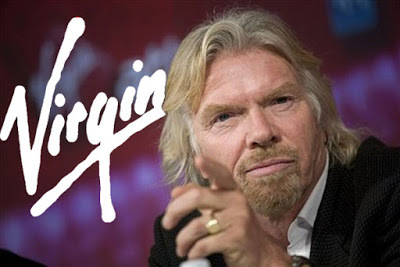
RICHARD BRANSON WISDOM
G'day folks,
Sir Richard Charles Nicholas Branson is an English business magnate, investor, and philanthropist. He is best known as the founder of Virgin Group, which comprises more than 400 companies, and he has always impressed me with his attitude to life.
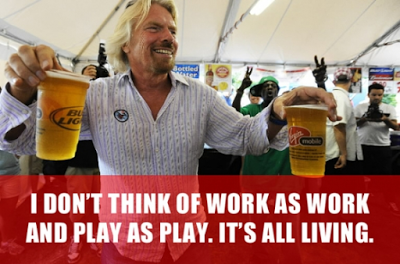
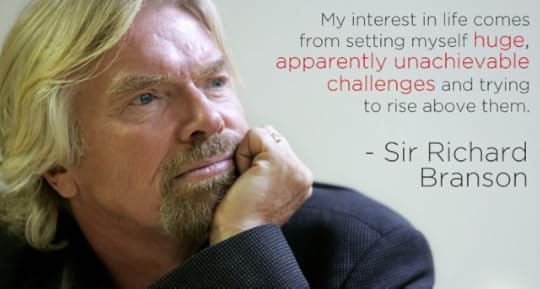
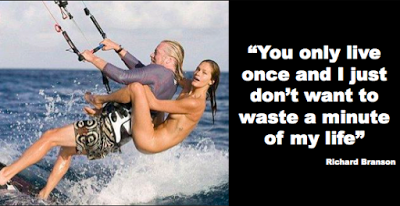
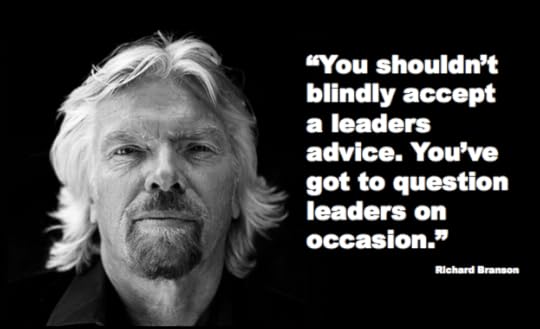

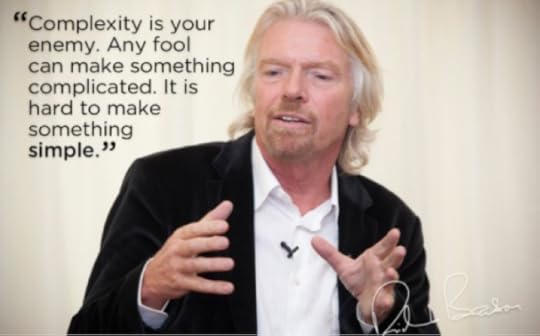
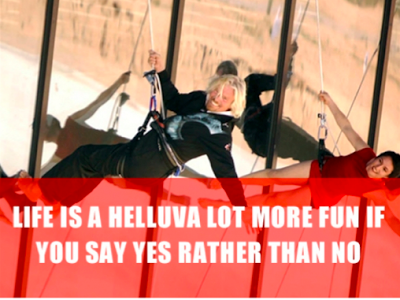
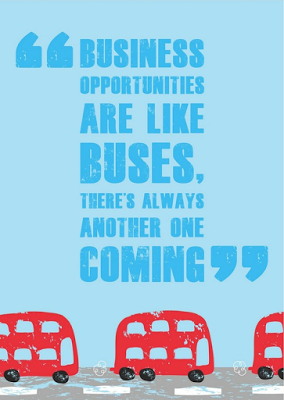
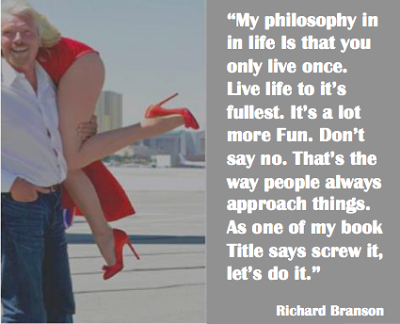
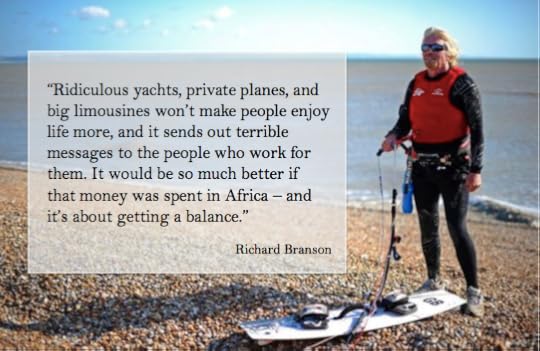
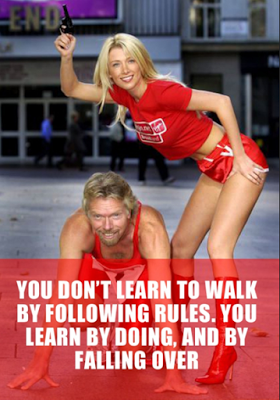

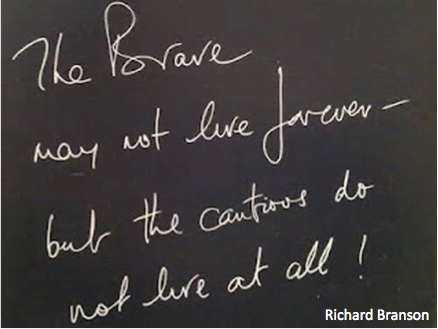
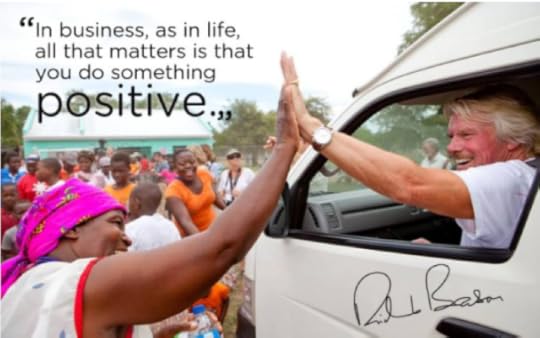
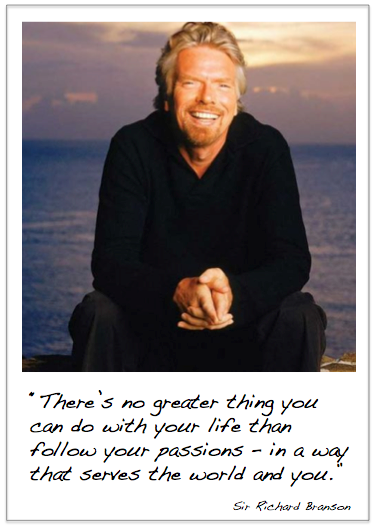
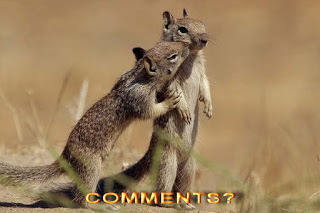
Clancy's comment: I'd love to spend an hour with him, just chatting about all kinds of stuff.
I'm ...
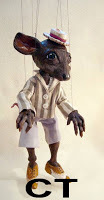

Published on May 27, 2016 15:35
May 26, 2016
27 May 2016 - FUNNY KIDS

FUNNY KIDS
G'day folks,
Welcome to some humorous snaps of kids.
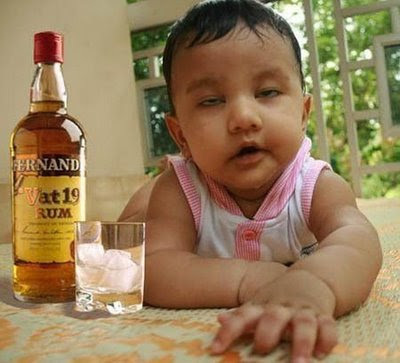
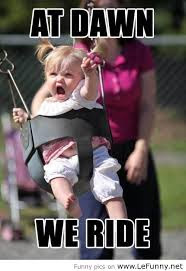
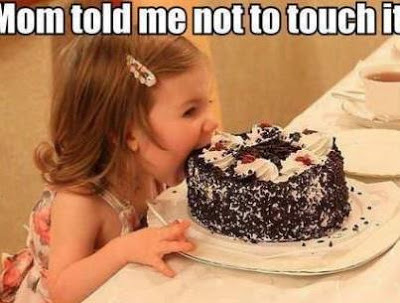
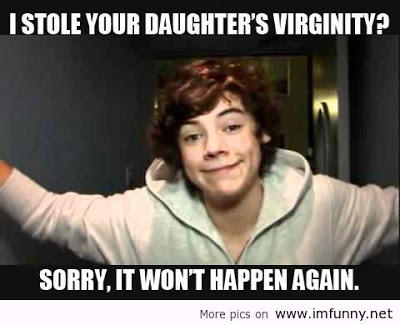
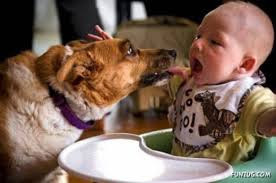
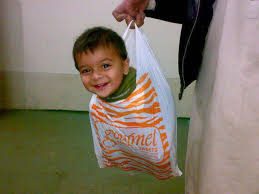
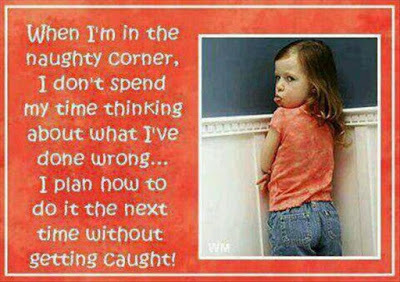
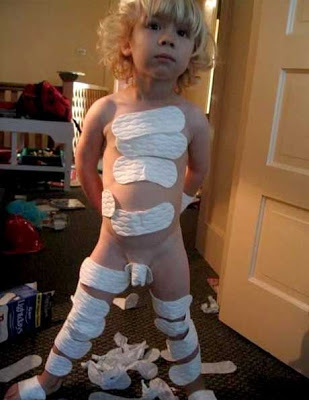


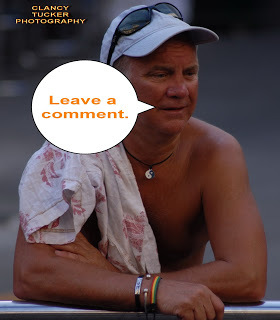
Clancy's comment: Mm ... Gotta be there with a camera, eh?
I'm ...
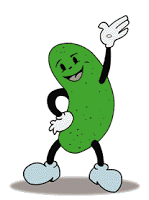

Published on May 26, 2016 15:06
May 25, 2016
26 May 2016 - TONY BROOKS - Guest Author
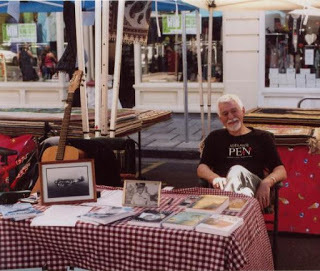
TONY BROOKS- Guest Author -
G'day folks,
Today, I interview an author who originally came from the UK to settle in Australia.
Welcome, Tony ...
1. TELL US A LITTLE ABOUT YOURSELF AND YOUR WRITING JOURNEY.
I began writing HF novels as soon as I finished teaching in the early eighties
2. WHEN AND HOW DID YOU BECOME A WRITER?
I became a writer because I loved certain genres and learnt so much from them. I wanted to emulate the best and bring the people of history to life
3. WHAT TYPE OF PREPARATION DO YOU DO FOR A MANUSCRIPT? DO YOU PLAN EVERYTHING FIRST OR JUST SHOOT FROM THE HIP?
I tend to do great amounts of research, and gradually plot lines develop that I often card up in the manner of a film treatment.
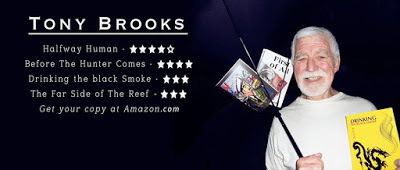
4. WHAT DO YOU ENJOY MOST ABOUT BEING A WRITER?
Getting to know my characters and sharing their feelings with my readers
5. WHAT IS THE HARDEST THING ABOUT BEING A WRITER?
Making yourself get up and go to the 'office'
6. WHAT WERE YOU IN A PAST LIFE, BEFORE YOU BECAME A WRITER?
A commercial oddbody and then a national service man, from which I fell in to teaching
7. WHAT IS YOUR GREATEST WRITING ACHIEVEMENT?
My seven novels, and my prize winning play, 'Honest John'.
8. WHAT ARE YOU WORKING ON AT THE MOMENT?
Several drama doco's and a series of books for children entitled 'The Gum Tree Creek Mob'.
9. WHAT INSPIRES YOU?
The desire to make people love books.
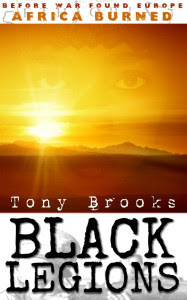
10. WHAT GENRE DO YOU WRITE?
Mainly HF, but I have written a number of plays, many of which have historical characters who seem to have been somewhat forgotten, like Sir Douglas Mawson
11. DO YOU HAVE ANY TIPS FOR NEW WRITERS?
Love your characters and don't resist the need to rewrite copiously.
12. DO YOU SUFFER FROM WRITER’S BLOCK?
Very rarely, thank God
13. DO YOU HAVE A PREFERRED WRITING SCHEDULE?
No! Do it when the nascent book calls to you.
14. DO YOU HAVE A FAVOURITE WRITING PLACE?
In my study/bedroom so I can collapse on the bed when necessary
15. WHAT IS YOUR GREATEST JOY IN WRITING?
To hear someone say, 'I couldn't put it down, Tony'.
16. WHO IS YOUR FAVOURITE AUTHOR AND WHY?
CS.Forester, maybe, but if I love the book then I love the author.
17. WHAT’S THE GREATEST COMPLIMENT YOU EVER RECEIVED FROM A READER?
Like I said, 'I just could not put it down'.
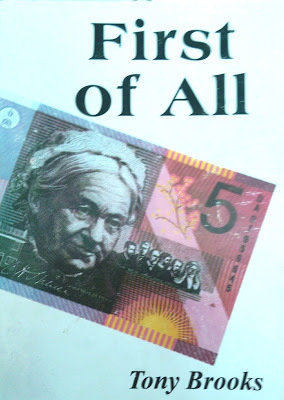
18. WHAT WAS THE WORST COMMENT FROM A READER?
I got a bit confused with the movement from place to place.
19. WRITERS ARE SOMETIMES INFLUENCED BY THINGS THAT HAPPEN IN THEIR OWN LIVES. ARE YOU?
Without a doubt. In 'Halfway Human' I derived great inspiration from my work with a man in prison who wanted to write a play.
20. OTHER THAN WRITING, WHAT ELSE DO YOU LOVE?
Music and live theatre.
21. DID YOU HAVE YOUR BOOK / BOOKS PROFESSIONALLY EDITED BEFORE PUBLICATION?
No, but my e publishers in Arizona have always checked the work before publishing.
22. DESCRIBE YOUR PERFECT DAY.
Sitting a market where I am doing hands on selling and just talking about my and other people's books
23. IF YOU WERE STUCK ON A DESERT ISLAND WITH ONE PERSON, WHO WOULD IT BE? WHY?
James Michener whom I had the great pleasure of meeting once.
24. WHAT WOULD YOU SAY IF YOU HAD THE CHANCE TO SPEAK TO WORLD LEADERS?
Do all you can to encourage children to read and talk about good books.
25. WHAT ARE YOUR PLANS FOR THE FUTURE?
To get my work on film or TV and get my children's books out there.
26. WHAT ARE YOUR VIEWS ON BOOK TRAILERS? DO THEY SELL BOOKS?
What's a book trailer?
27. DO YOU SEE YOURSELF IN ANY OF YOUR CHARACTERS?
Maybe, but they are often much more interesting than me.
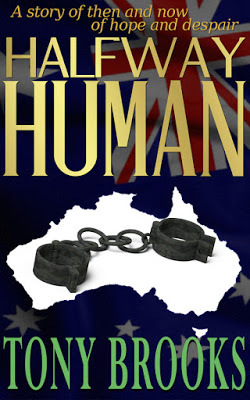
28. DOES THE PUBLISHING INDUSTRY FRUSTRATE YOU?
It does actually frustrate the hell out of me.
29. DID YOU EVER THINK OF QUITTING?
Sometimes, but then I think of all the joy I have had from books over the years
30. WHAT WAS YOUR FAVOURITE MANUSCRIPT TO WRITE? WHY?
I think it was my novel on the blackbirders, 'The Far Side of the Reef', closely followed by my play on Mawson, 'Ice'.
31. HOW WOULD YOU DEFINE ‘SUCCESS’ AS A WRITER.
The knowledge that thousands of people have read and enjoyed your work.
32. WHAT SHOULD READERS WALK AWAY FROM YOUR BOOKS KNOWING? HOW SHOULD THEY FEEL?
They should feel that they have come to know the characters and have real empathy for them, even the villains of the piece.
33. WOULD YOU LIKE TO HAVE YOUR BOOKS MADE INTO MOVIES? EVER WRITTEN A SCREENPLAY?
Only if the film maker shows respect for my work. And Yes I have.
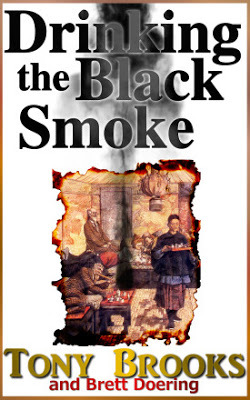
34. HOW MUCH THOUGHT GOES INTO DESIGNING A BOOK COVER?
My wife designs many of my book covers and I think she does a fantastic job. But now I see that the writer's name should be there in big letters, since many readers choose the work of their favourite writer.
35. WHAT’S YOUR ULTIMATE DREAM?
To win the Boooker prize
36. WRITING IS ONE THING. WHAT ABOUT MARKETING YOU, YOUR BOOKS AND YOUR BRAND? ANY THOUGHTS?
Sure is hard work! But one should try to market in as many different ways as possible. Also, new writers could do with much more help from the arts gurus of all states.
38. DESCRIBE YOURSELF IN FIVE WORDS.Somewhat obsessed, but pleasantly persistent.
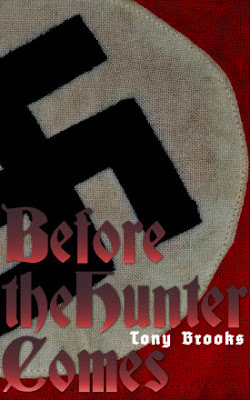
39. WHAT PISSES YOU OFF MOST? Vampires, werewolves and zombies.
40. WHAT IS THE TITLE OF THE LAST BOOK YOU READ? GOOD ONE? The Boy Under the Table, by Nicole Trope
41. WHAT WOULD BE THE VERY LAST SENTENCE YOU’D WRITE?Damn this computer; it keeps making mistakes
42. WHAT WOULD MAKE YOU HAPPIER THAN YOU ARE NOW? CARE TO SHARE?A growing number of readers who really enjoy my books.
43. ANYTHING YOU’D LIKE TO ADD?Nope, don't think so; I believe I've said it all
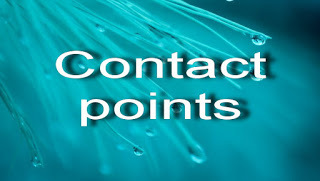
http://www.tonybrooksbooks.com/

Clancy's comment: Well done, Tony. Keep going. Good luck.
I'm ...

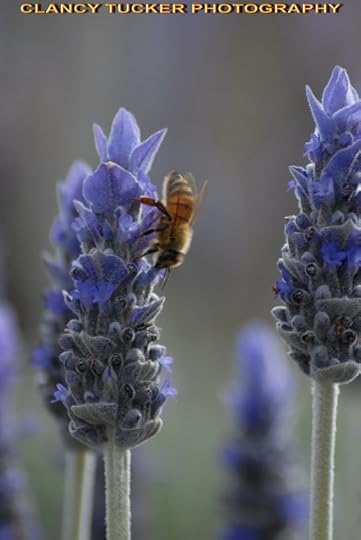
Published on May 25, 2016 15:55
May 24, 2016
25 June 2016 - MARGOT FINKE - Guest Author

MARGOT FINKE- Guest Author -
G'day folks,
Today, I interview an inspiring Aussie author, living in the USA.
Welcome, Margot ...
1. TELL US A LITTLE ABOUT YOURSELF AND YOUR WRITING JOURNEY.I am an Aussie transplant now living in Oregon, USA. Originally from Victoria, and then Queensland, I married a New Yorker, and moved to the US with him and our 3 kids many years ago. All are now grown, successful, and have done their duty by gifting us with 4 wonderful grandchildren—the light of our lives.
We live in the country, in a white two story farmhouse that was built around 1900. Summer in our garden, under old oak and fir trees, enveloped by the scent of the flowers, and the buzz of the bees, is idyllic. Except in spring, when the deer sneak in at dawn and breakfast on our new rose leaves and tulip buds. Grrr! Hummingbirds live with, and are fed by us all year round. Many other birds come and go with the change of each season. Winter can be chilly and wet, or very cold and snowy. Either way, we hunker down and turn up the central heating, or throw another log on the fire.
2. WHEN AND HOW DID YOU BECOME A WRITER?
Hard to say, really. I always wrote short bits and pieces. Being an avid reader really helped. Then, when our last child disappeared down the road, headed for College, I dived into writing mode with a vengeance. Kids and family first—them ME time!!
3. WHAT TYPE OF PREPARATION DO YOU DO FOR A MANUSCRIPT? DO YOU PLAN EVERYTHING FIRST OR JUST SHOOT FROM THE HIP?
Definitely a “shoot from the hip” gal. Ideas come to me late at night, when I long to sleep. If I don’t tip-toe into the bathroom (where I keep pad and pencil), and jot down these awesome ideas, by morning they have vanished.
In the morning I save what is brilliant or usable, and scrap the rest. My wastepaper basket is never empty. I just write it down as it comes to me. Rewriting is the fun part. Time to tweak here, switcheroo there, and cut the waffling before it jams up everything. I always allow rest periods between rewrites. A fresh eye sees things a familiar eye misses.
4. WHAT DO YOU ENJOY MOST ABOUT BEING A WRITER?
The fun of chasing characters through a plot scenario, arguing with them about what THEY want to do, and what I think they SHOULD do. Yet best of all is seeing the face of a child who is HOOKED on reading one o my books. That is my real writer pay-off, HOOKING Kids on Reading!
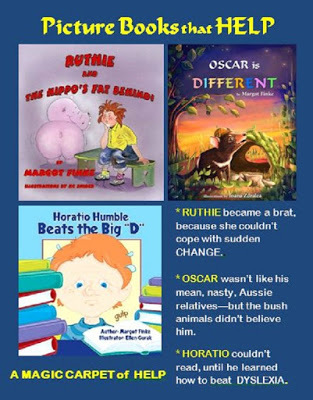
5. WHAT IS THE HARDEST THING ABOUT BEING A WRITER?
Having to quit and cook dinner, hose the garden, or go shopping. I write, because to not write is unthinkable. Unless you are J.K. Rowlings, you rarely make a fortune at writing—or even a living. Writers write because it is in our bones to do so.
6. WHAT WERE YOU IN A PAST LIFE, BEFORE YOU BECAME A WRITER?
Hmm, well, I was the Queensland Representative of the Ceylon Tea Bureau—before it became Sri Lanka. Then, I worked in the Jewellery business, and later on I owned an Aquarium Shop. My future husband supplied me with tropical fish, and the rest, as they say, is 44 years of happily married history. I was also a teacher’s aide when my kids were in grade school.
WHAT IS YOUR GREATEST WRITING ACHIEVEMENT?
My books with Australian themes (both PB and young teen) Dreamtime Man, Down Under Calling, Taconi and Claude, and its follow-up, Trial by Walkabout. And visiting schools to HOOK kids on reading—lately, I do this globally, via Skype.
7. WHAT ARE YOU WORKING ON AT THE MOMENT?My latest picture book, titled, Kobi Koala Borrows a Pouch. Plus contacting teachers about a SKYPE author visit. Flying my Magic Carpet of Books into their classrooms, chatting with the kids about books, writing them, and their own favourite stories. In this global world, I can Skype anywhere the time zones fit.
8. WHAT GENRE DO YOU WRITE?
Well mates, I guess I’ve already given that big secret away. Picture books and books for young teens. However, my picture books are mostly in rhyme, and are more for school age children—fun, educational, and with lots of extra information about the animals in them at the back of each book. For mid-grade and young teens, I write fast paced adventures, with danger, fun, and lots of hold-your-breath moments that keep them turning the page.
9. DO YOU HAVE ANY TIPS FOR NEW WRITERS?When I started out, I was lucky enough to have several talented writers mentor me. We were all members of the old CW list on Yahoo. Then, I formed OPUS, a critique group that went on for ten years, until all the members were well published. If you can, this is a great way to begin. I owe so much to their support, wise comments, and writing know-how
Today, the Internet offers so many ways writers can network and learn about every aspect of writing, editing, and publishing—even self publishing and book promotion.
So, drum roll please, for my list of “must dos,” for those who wish to master the craft of writing:
*Learn the basics of punctuation and grammar.
*Join a critique group that has some advanced or published members.
*Make the Thesaurus your best friend.*Use active, powerful and evocative words.
*Don’t waffle on. Leave your waffles in the kitchen, with the maple syrup and coffee, where they belong.
*Never use 10 words when 5 more powerful words say it better.
*Tight writing is vital—especially for picture books.* For picture books, leave the details to the illustrator.
*Make sure your dialogue is natural, plus age and time period appropriate.
*Know your readership. If writing for kids, THINK KID!
*Don’t attempt rhyming stories unless you have mastered the art of rhyme and meter.
*Be an active networker before your book is published. Get your name out there as an dynamic member of suitable social networking sites well ahead of book launch date. If you help and support other writers, they will help and support you.
For years I have run a Manuscript Critique and Content Editing service. It is always a huge thrill when a writer I helped has had their book published. YEA!

10. DO YOU SUFFER FROM WRITER’S BLOCK?Never.
11. DO YOU HAVE A PREFERRED WRITING SCHEDULE?
I write most afternoons. My husband has retired, and he has taken on the garden (an acre of it), the cooking and the laundry. Unfortunately, he does not do windows, dusting or vacuuming—drat it!! How does a writer find first-rate home help these days?
12. DO YOU HAVE A FAVOURITE WRITING PLACE?
Aha, now you’re talking of a place that is the envy of all my writing friends. When the kids left home, I turned the old family room into my writing den plus winter flower garden. Husband, Alan, made me a large two tiered desk. There are couches, chairs, a fireplace to snuggle near, and windows to the outdoors. In winter, we bring in tender potted and flowering plants. These overwinter under plant lights dear husband set up. Not quite writing paradise—but close!
13. WHAT IS YOUR GREATEST JOY IN WRITING?
Reading my books to classes of children, and also to my grandchildren.
14. WHO IS YOUR FAVOURITE AUTHOR AND WHY?
A Thousand Splendid Suns by Khaled Hosseini He does what all authors should—he paints word pictures that stay in your head forever. His paragraphs and pages are dynamic and evocative. You are there with each character as you read. You become a part of the story. He makes it real.
15. WHAT’S THE GREATEST COMPLIMENT YOU EVER RECEIVED FROM A READER?
I am fortunate to receive many reviews with high praise. Here is snipped part from one review by a teacher:
Margot Finke is a word master, using her lyrical writing style and ingenious imagination to put together this marvellous story that tweens will enjoy for a long time. This is a goldmine of a book for teachers. Students are introduced to the power of words through the online resource provided in the Kindle version. Click on a word, and the New Oxford American Dictionary definition pops up. What better way to introduce the magnificent world of vocabulary to students? This teacher highly recommends “Daisy and Bartholomew Q.” I look forward to sharing it with my students this year!
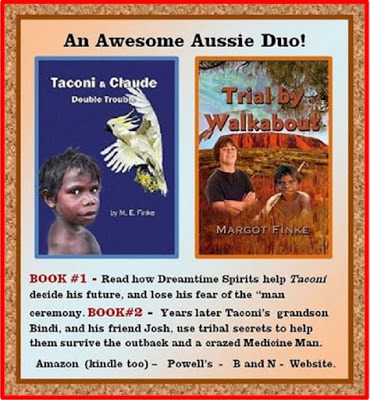
16. WHAT WAS THE WORST COMMENT FROM A READER?I am embarrassed to say that no one has given me a hard time about any of my books. If they didn’t like or enjoy a book they kept it to themselves. 17. WRITERS ARE SOMETIMES INFLUENCED BY THINGS THAT HAPPEN IN THEIR OWN LIVES. ARE YOU?
Oh yes. My grand kids are a constant source of inspiration, and my children too, when they were young. I wrote Horatio Humble Beats the Big D. (dyslexia), because my middle child was diagnosed with it. My crazy Rattlesnake Jam came about to encourage my reluctant reader son to start reading. Down Under Calling is part fiction and part memoir. It is about growing up in Queensland in the mid nineteen hundreds. And The Revenge of Thelma Hill , a ghost mystery set in Oregon, turned out to have my dear mom as the title character. As I wrote, the ghost became more and more familiar. And then it hit me—I was channelling my mom. Mom would be absolutely tickled to be a main characters in a book I wrote. Thelma Hill was Mom’s maiden name.
18. OTHER THAN WRITING, WHAT ELSE DO YOU LOVE?Travel (China, Europe, England, Down Under, and all over the US and Canada). Reading of course, and gardening. Do my kids and grandkids count?
19. DID YOU HAVE YOUR BOOK / BOOKS PROFESSIONALLY EDITED BEFORE PUBLICATION?The publisher provided this service for my first 8 or so books. I paid for editing when I began self-publishing. It is expensive, and many writers self-edit their own books. I guess this is obviously why there are so many really awful books available now. The best money a writer will ever spend is on a good professional edit.
20. DESCRIBE YOUR PERFECT DAY.
In winter—a final rewrite that feels PERFECT!
21. WHAT WOULD YOU SAY IF YOU HAD THE CHANCE TO SPEAK TO WORLD LEADERS?
Wake up, before you ruin this planet for our children and grandchildren. I would also add this PS: Be more understanding and tolerant of other religions, countries, and customs. Our survival depends on wise pro-active leaders—not rabid bigots.
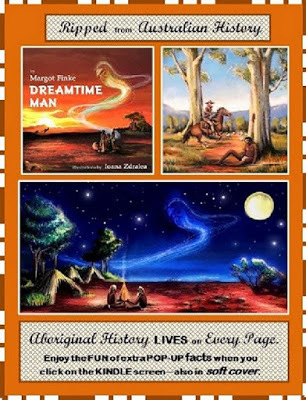
22. WHAT ARE YOUR PLANS FOR THE FUTURE?Keep writing, keep promoting my books, and keep on HOOKING Kids on Reading.
23. WHAT ARE YOUR VIEWS ON BOOK TRAILERS? DO THEY SELL BOOKS?
If you create something spectacular—they can work. But this is costly, and most writers are on a shoestring budget as far as paid promotions go.
24. DO YOU SEE YOURSELF IN ANY OF YOUR CHARACTERS?
Only as Grandma Rose in Down Under Calling.
25. DOES THE PUBLISHING INDUSTRY FRUSTRATE YOU?Not since I began self-publishing. Before that, it definitely made me tear out my hair. I know so many wonderful writers who never became published. They simply gave up.
26. DID YOU EVER THINK OF QUITTING?
NEVER! The majority of writers need a day job, a Sugar Daddy, or like me, a supportive husband. We are not in it for the loot. We are in it because we are hooked—addicted to the thrill and adventure of creating characters, and then weaving them into plots and situations that keep readers reading.
27. WHAT WAS YOUR FAVOURITE MANUSCRIPT TO WRITE? WHY? Down Under Calling and Dreamtime Man. Dreamtime: an epic rhyming take of how the aboriginals survived the arrival of the white man. Down Under: creating letters that told an astonished and far away grandson what it was like growing up Down Under, many, many, years ago.
28. HOW WOULD YOU DEFINE ‘SUCCESS’ AS A WRITER. Being respected and admired by your peers, and widely read by kids. Some fat royalty checks would also qualify. 29. WHAT SHOULD READERS WALK AWAY FROM YOUR BOOKS KNOWING? HOW SHOULD THEY FEEL?Hopefully: satisfied, enlightened, and eager for more of the same. I try to weave plots, characters, and situations that offer fun facts, excitement, and a moral compass. All this in a setting young people will relate to and learn from.
30. WOULD YOU LIKE TO HAVE YOUR BOOKS MADE INTO MOVIES? EVER WRITTEN A SCREENPLAY?Years ago, when I still lived in OZ, I acted in a drama club and wrote scripts for stage plays. All of my books for young teens would translate into movies very well—strong characters and lots of action.
31. HOW MUCH THOUGHT GOES INTO DESIGNING A BOOK COVER?
Brainstorming with the artist is vital. One of the perks of self- publishing is that you have a lot of input into cover and illo design. A cover needs to show well on Amazon or on a bookstore shelf. The title must be clear and easily read. Avoid lots of fussy details. Keep it bright and simple, with lots of kid appeal.
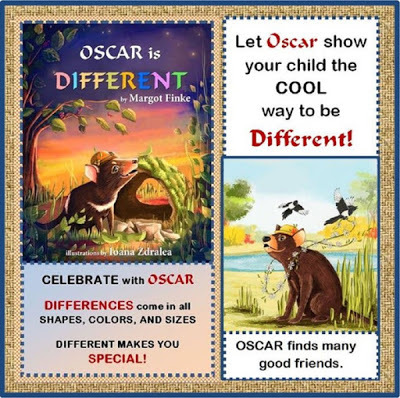
32. WRITING IS ONE THING. WHAT ABOUT MARKETING YOU, YOUR BOOKS AND YOUR BRAND? ANY THOUGHTS?Writing the darn books is the easy part—promotion is tricky, time consuming, and goes on forever. Begin your life as a writer by setting up a terrific blog or website. Make it upfront and personal for future readers, with your goals and plans in mind. Begin book promotion when you begin writing that first book. Take future readers on the journey with you. Draw them into the process, so they will eventually buy your book, because they feel a part of it.
This is called BRANDING yourself as a writer.
Make sure you have a writing presence on the main Social Networking sites, and those that specialize in the genre` you are writing. Research online about how to promote after your book is launched—Press Releases, Newspapers, TV, Book Tours and Book Signings. The Internet is an awesome resource.
33. ARE YOUR BOOKS SELF-PUBLISHED?Not at the beginning. My first books were with a small publisher. Yet once I had a following I tried self-publishing, and I loved it—for a perfectionist control freak like myself, more control was the ultimate high! Of course nothing is perfect. Now I have more responsibility. The buck stops at MY desk. It is hard to gain a readership with just one or two self- published books. However, when you earn some recognition, and have a readership, self publishing can be the way to go.
34. DESCRIBE YOURSELF IN FIVE WORDS.Opinionated, detail oriented, strong minded, imaginative, creative.
35. WHAT PISSES YOU OFF MOST?Don’t get me started! It is all those really atrocious books that are now available because of self –publishing. Everyone is absolutely certain they can write a best seller—no editing, no training in the craft of writing, no talent!
36. WHAT IS THE TITLE OF THE LAST BOOK YOU READ? GOOD ONE? The Gift of Sunderland by Jeanne Rogers. This is an Australian adventure—a kind of Watership Down, but with unique Aussie critters instead. Jeanne is an Ausiephile, and a wonderfully imaginative writer.
37. WHAT WOULD BE THE VERY LAST SENTENCE YOU’D WRITE?Oh please, don’t let me die now! I must finish this last rewrite before I go.
38. WHAT WOULD MAKE YOU HAPPIER THAN YOU ARE NOW? CARE TO SHARE?That I was 20 years younger, so I could take advantage of all the new technology for writers that wasn’t available when I started out. So many fantastic things are on the cusp of fruition—for medicine, publishing , outer space, you name it!
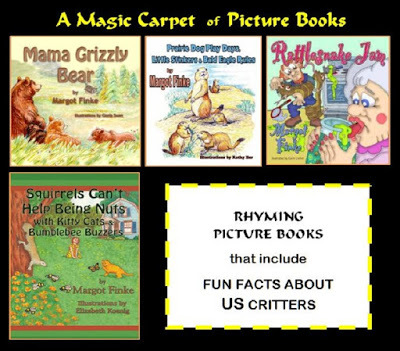
39. ANYTHING YOU’D LIKE TO ADD?
I think I have waffled on quite enough. I do want to say many thanks for allowing me to chat with your readers. And some of your questions had me scratching my head for good and truthful answers. Thank you, Clancy.
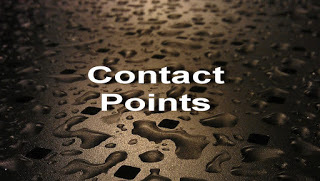
*My Website:http://www.margotfinke.com
*My Pinterest (fantastic for links to great information re Writing , Publishing and more) https://www.pinterest.com/margotfinke/
Amazon: http://www.amazon.com/MargotFinke/e/B001K1PTL8/ref=sr_tc_2_0?qid=1458250151&sr=1-2-ent
*Read Sample Chapters from Margot’s books:
http://sample-reads.blogspot.com/
*Margot reads from Daisy and Bartholomew Q.
https://www.youtube.com/watch?v=tWGThdBA7EI

Clancy's comment: Thanks, Margot. Keep going. You are obviously fired up. By the way, Jeanne Rogers is a good mate of mine. She writes wonderful stories about Australian animals, and has also been a guest on this blog.
I'm ...

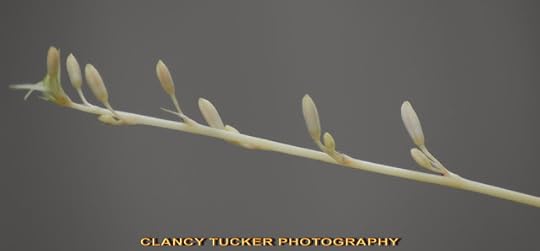
Published on May 24, 2016 15:22
May 23, 2016
24 May 2016 - A FREE SPIRIT

A FREE SPIRIT
G'day folks,
Are you a free spirit? I certainly am. So, here are some great quotes on this subject that might inspire you to do whatever you have been considering. I love the first one. In fact, I like all of them. Dare to be different ...
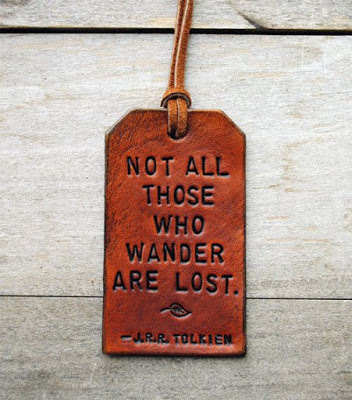

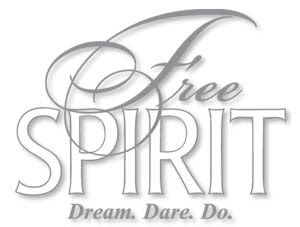

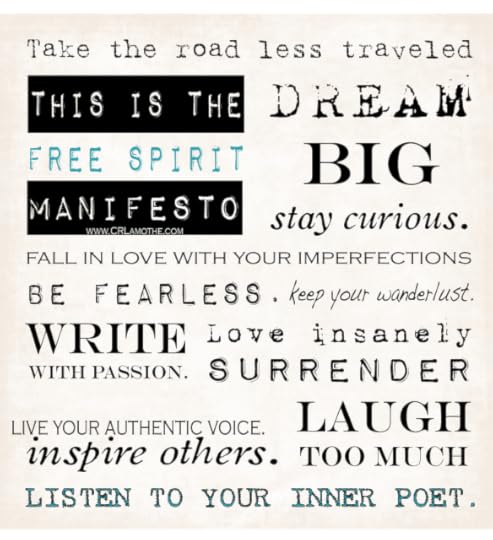

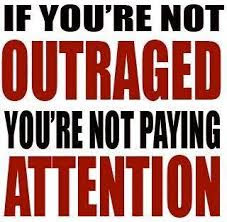
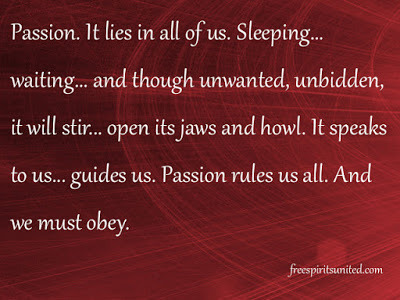
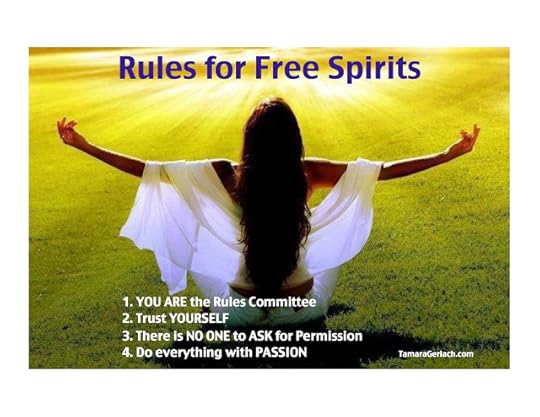


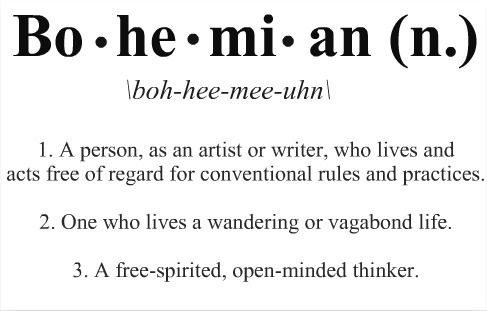
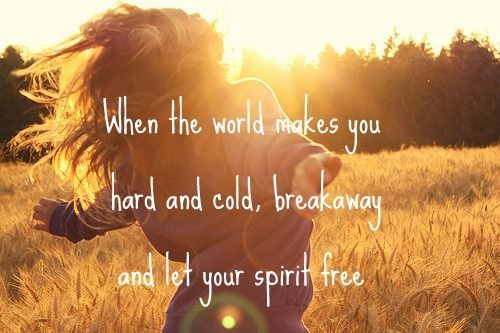
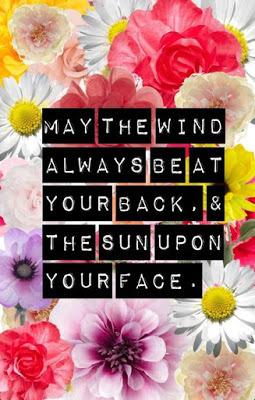
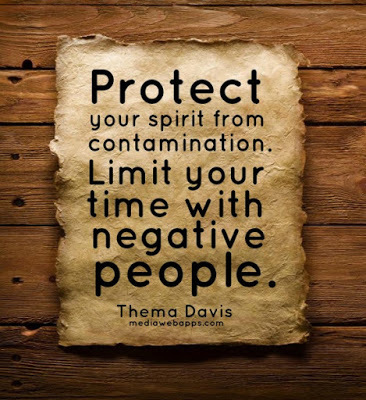
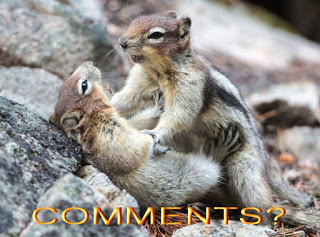
Clancy's comment: Yep, I must be a Bohemian. Life's short ... Use it ... There is plenty to do.
I'm ...
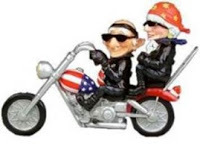
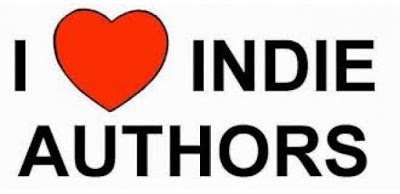
Published on May 23, 2016 16:43
May 22, 2016
23 May 2016 - MOTHER NATURE

MOTHER NATURE
G'day folks,
One great thing about photography is that it takes you closer to nature ... And whatever subject you are taking. Check out these wonders taken by some clever folks.

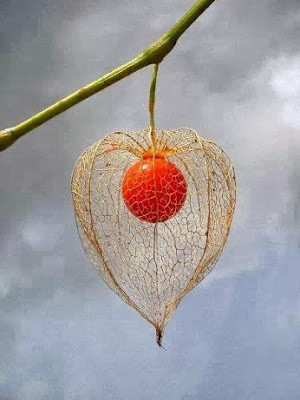


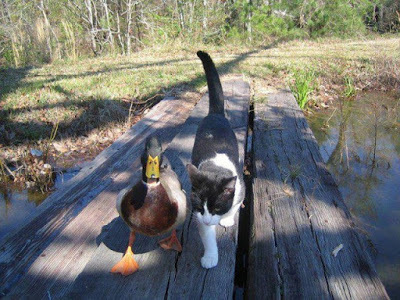
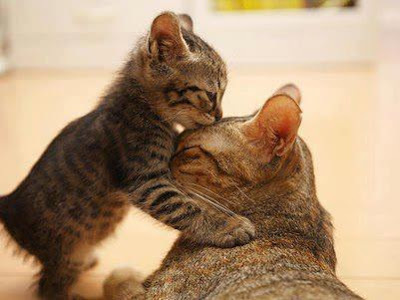




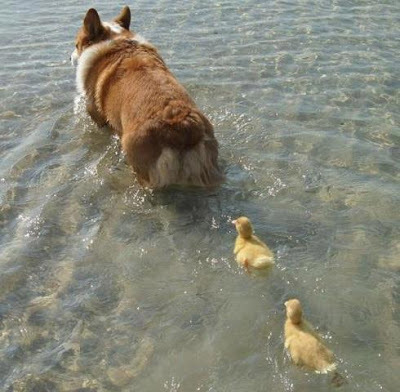


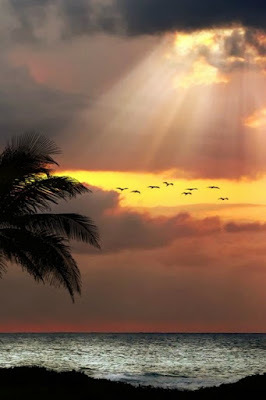



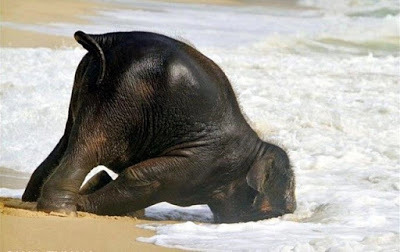
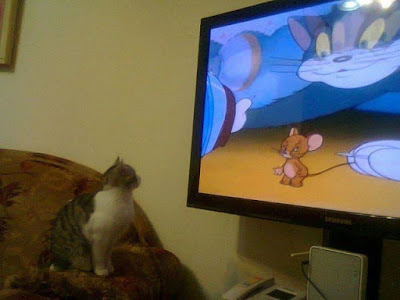
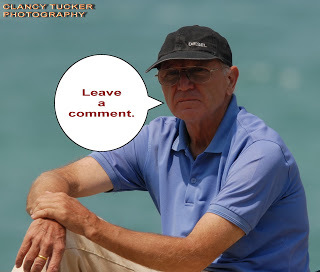
Clancy's comment: Awesome, eh?

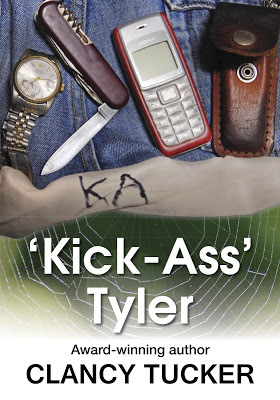
'KICK-ASS TYLER' 5-STAR REVIEW by VICKI CASE
Adventure, courage & pure kick-ass Aussie spunk 20 May 2016
By Vicki CASE - Published on Amazon.com
Format: Kindle Edition
When you pick up a Clancy Tucker book to read, you can be assured that you won’t be disappointed.
I have just finished Kick-Ass Tyler (KAT); Clancy's latest book & it was a corker - full of adventure, courage & pure kick-ass Aussie spunk.
If it’s one thing I deplore it’s that; in most books & movies; the female is characterised as the weak victim who always seems to fall over at the most inopportune time. But not in a Clancy 'Kick-Ass' Tucker book - they just don't - they shine.
Young Samantha Tyler has endured more in her short life than most. She has a rebellious streak, but a heart of gold. Her life & friends were coasting along just fine until a boy from her school is suddenly kidnapped. 'Sam' as she likes to be called; uses her 'kick-ass' magic & provokes her school colleagues & the community into action in an effort to find young Zoran. Somewhere during her endeavours, she herself provokes the kidnapper, & is kidnapped herself.
Sam & Zoran are eventually saved, through the combined efforts of people she has met during the process, her step-father & her beloved dog 'Ruffy.'
KAT is a great read for avid readers of all ages. It is another great adventure story that epitomises the courage & tenacity of our youth; & their resourcefulness in the face of adversity.
I highly recommend KAT. I understand it is one of a series. I am now waiting with baited breath for the next book in the series to come to fruition.
Well done Clancy. You are an amazing author. You honour your country; your literary profession & yourself. I applaud you Clancy Tucker. We need more great authors like you in our schools & libraries.

Thank you, Vicki. Yes, the next two books in this series are finished. After they have been polished, I'll publish them. Their titles? 'LIFE SUCKS!' and 'STREETWISE'. So, grab a copy of 'Kick-Ass' Tyler at my bookshop - top right hand corner of this post. Don't be shy!
I'm ...

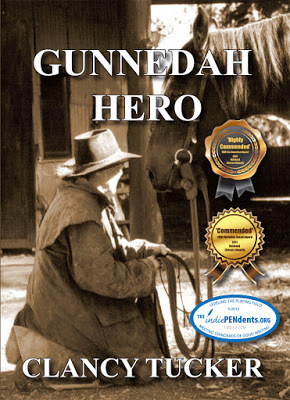
Published on May 22, 2016 16:49
May 21, 2016
22 May 2016 - FREDERICK DOUGLASS
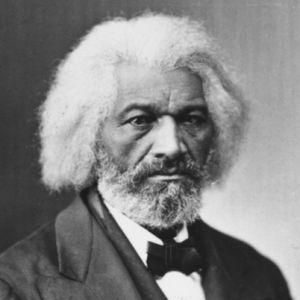
FREDERICK DOUGLASS
G'day folks,
Happy to present another activist. Frederick Douglass was an African-American social reformer, abolitionist, orator, writer, and statesman, born in 1818.
Frederick Douglass was a former slave who escaped and became a powerful anti-slavery orator. Douglass wrote three autobiographies describing his experiences as a slave and then gaining his freedom. His writings and speeches became powerful testimonies to support the abolition of slavery. Douglass was the most influential African-American leader of the Nineteenth Century, and exemplified great moral courage in opposing slavery and injustice.
Frederick Douglass was born into slavery in Talbot County, Maryland. His mother, Harrier Bailey was a slave; his father was probably his mother’s slave owner. He saw little of his mother when growing up, and she died when he was 10. The young Douglass was brought up by his grandmother until the age of seven, when he was sent to Baltimore to serve Hugh Auld.
Although still a slave, in Baltimore, the young Douglas was taught to read by the wife of his Master – Sophia Auld. Douglas had fond memories of Sophia and felt he was treated like a human being; these early steps in learning to read would prove critical for awakening in Douglass a greater aspiration for freedom. Douglass said that going to Baltimore was crucial in enabling him to eventually escape slavery.
He also said that even in his darkest hours of slavery, he always held onto an inner conviction that ‘slavery would not always be able to hold me within its foul embrace‘. He saw the hand of Providence in guiding him to eventual freedom, writing,’ This good spirit was from God, and to him I offer thanksgiving and praise.’
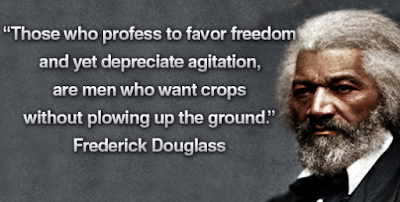
However, when Hugh Auld discovered his wife had been teaching Douglass to read, he expressed his strong displeasure. Like many slave owners, he feared that if slaves became educated they would have an even greater desire for freedom. This made it more difficult for Douglas to be educated, but he continued to try, in secret, to read newspapers and books which gave him a broader education.
In particular, he later credited the newspaper, The Colombian Orator for developing his strong ideals on human dignity and individual freedom. The attitude of his slave master, in trying to prevent him from reading, was also a cautionary lesson for Douglass and throughout his life he emphasised the importance of education to help ameliorate the conditions of African Americans.
His ability to read was hugely influential. When he was moved away from the home of the Auld’s, Douglass made an effort to educate other slaves on how to read the New Testament at a weekly Sunday School. Douglass was able to act as teacher for a large group of slaves for six months, before the activity was broken up by slave owners – incensed by the idea of their slaves being educated.

In 1833, Douglass was sent to work for Edward Covey a farmer and notorious slave driver. Covey regularly whipped Douglass and his other slaves. The experience left Douglass with deep mental and physical scars, but it strengthened his resolve to escape from slavery. Douglass began formulating a plan, but his plans were discovered and he was sent to prison. However, he came into contact with Anna Murray-Douglass a free black women. The two fell in love, and she used her savings to help Douglass escape. In September 1838, Douglass, dressed in a sailor’s uniform, escaped via train and steamboat to Philadelphia and then on to New York. He stayed, temporarily, in the home of New York abolitionist David Ruggles. He later wrote of his overwhelming joy in escaping the life of a slave and finding himself a freeman on free soil.
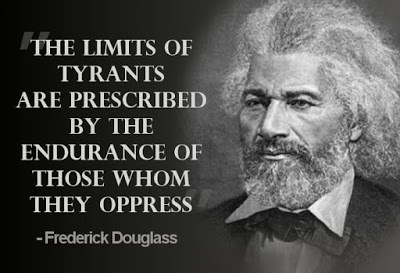
Eleven days after arriving in new York, he married Anna, who had helped him escape from slavery. Douglass was married to Anna for 44 years, until she died in 1882. They had five children.
The Douglass’ settled in New Bedford, Massachusetts, where they became active in anti-slavery campaigns. An important influence was William Lloyd Garrison. Garrison was a fierce anti-slavery campaigner, who held uncompromising views on abolishing slavery. Listening to Garrison speak was an important moment for Douglass, and he became more committed to the movement. Garrison also mentioned Douglass in his weekly journal – The Liberator.
In 1841, aged 23, he was invited to give a speech to an anti-slavery meeting. Overcoming his nervousness, Douglass got up and gave a passionate speech about his painful life as a slave and the joy of gaining freedom. Garrison became a friend and supporter of Douglass and invited him on a lecture tour of the US.
Douglass spent six months travelling through the mid west and East US giving lectures on the abolition of slavery. It was a courageous action because, at the time there was great resistance to the idea of abolishing slavery. Douglass was frequently attacked physically and verbally. In Pendleton, Indiana, he suffered a broken hand, when being attacked by a mob. Many were amazed to see a black man speaking with great eloquence and intellect; his powerful speeches challenged many people’s views – prevalent at the time – that black men were racially inferior and couldn’t be properly integrated into society. Douglass was a powerful example of intellect, humanity and charisma – undermining the racist views of the day. He made a strong moral case against slavery.
In 1845, Douglass wrote his first autobiography – Narrative of the Life of Frederick Douglass, an American slave. It became a best seller and was reprinted several times. It was a ground-breaking work, one of the earliest first hand accounts of slavery. Some even doubted whether a slave was capable or writing so well. It launched him as a national figure. In 1855, he followed up with a second book, My Bondage and My Freedom.
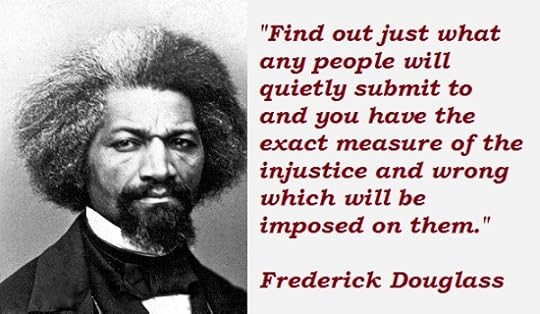
Lecture tour in the British Isles
This was still a dangerous time to be a freed slave. After naming his former slave owner in his autobiography, he feared recapture. If he was recaptured, the law wouldn’t protect him. Douglass, supported by friends, decided to go on a two year lecture tour of Ireland and Britain. He arrived in Ireland in 1845, and was amazed at the lack of racial prejudice – which he had become so accustomed to in America. His lecture tour was a great success, with Douglass speaking to packed audiences at churches and meeting halls across the two countries. He developed friendships with many people sympathetic to the cause of abolishing slavery.
Supporters raised sufficient funds to be able to buy his freedom from his slave owner. He met with Thomas Clarkson, a prominent abolitionist. Douglass was encouraged to stay in England to be safe from the threat of being put back into slavery. But, he felt a need to return to the US and work for the emancipation of the three million slaves still captive in the US.
In 1848, he attend the women’s rights convention in Seneca. Douglass was the only African American to attend. He spoke passionately in favour of women’s suffrage and became a lifelong supporter for the women’s rights movement, becoming acquainted with prominent women’s rights activists such as Elizabeth Cady Stanton. Douglass felt rights for black people should be linked with rights for women’s rights. However, after the Civil War, he felt he had to drop support for womens’ suffrage to enable the passage of the 15th Amendment, giving black men the vote. Douglass feared if womens’ suffrage was attached to the bill, it would mean failure for both. Though he made of point of saying he never argued against women’s right to vote.
On February 20, 1895, Douglass died of a heart attack or stroke in Washington D.C. Thousands attended his funeral a the Metropolitan African Methodist Episcopal church.

Clancy's comment: I take my hat off to folks like this man, especially when you read about the times in which they lived. Would have been tough.
I'm ...

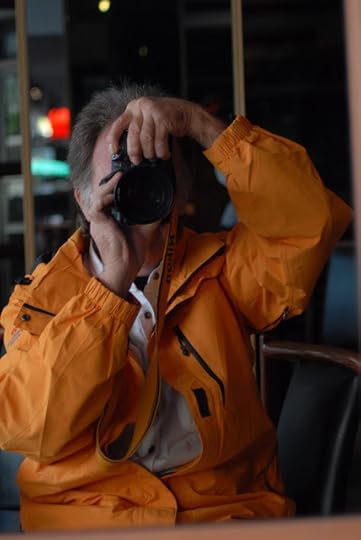
Published on May 21, 2016 16:12
May 20, 2016
21 May 2016 - CONVICT LIFE IN AUSTRALIA
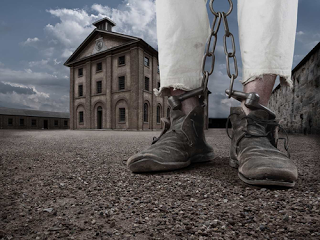
CONVICT LIFEIN AUSTRALIA
G'day folks,
Did you know that Australia was founded as a penal colony? That explains a lot of things I guess to those who have not been here, but have met some Aussies. Seriously though, transportation continued in small numbers to Western Australia. The last convict ship, the Hougoumont, left Britain in 1867 and arrived in Western Australia on 10 January 1868. In all, about 164,000 convicts were transported to the Australian colonies between 1788 and 1868 on board 806 ships.
Convict transportation lasted for about 80 years. Because this was the founding third of Australia's urban existence, it is worthwhile considering the type of cultural values such people would have left for subsequent generations. Because most Convicts were illiterate, it is difficult to know what most of them thought of their society; however, their songs reveal some attempt to humanise themselves as well as their fellow Convicts.
Riotous scenes as women are landed
Port Jackson, Feb 6 1790. Scenes of riot and debauchery after the disembarkation of the women convicts tonight transformed Sydney cove into something resembling a gin palace attached to a brothel.
All this took place at night during a violent storm with lightning bolts which, at one place, split a tree in half, killing five sheep and a pig that were penned below it.
The licentious merriment began when some merchant seamen requested some grog from their captain. No doubt the man had good reason to comply, in the relief at getting rid of the last of his convicts, as he had faced a penalty of £40 for every convict missing.
Soon the sailors and convicts were in and around the women's tents, some queuing for sex, others making love with women they had forged attachments on the voyage. Others were swearing, fighting or singing.
While the scene was deplorable no action by the Governor nor his officers. Presumably they thought that intervention would have provoked a serious riot, and that it was best to wait for the morning to re-establish order.
The women, cooped up on the voyage and for another 10 hot and intolerable days outside Sydney Cove, had not too many chaste figures among them.
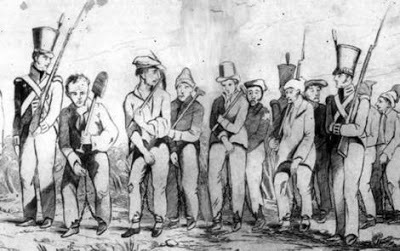
Letter by unknown convict published in London newspapers in 1791
‘Oh! I you had but seen the shocking sight of the poor creatures that came out in thethree ships, it would make your heart bleed; they were almost dead; very few could stand, and they were obliged to fling them as you would goods; and hoist them out of the ship, they were so feeble; and they died ten or twelve of a day when they first landed; but some of them are getting better. They died in their way, on board the Neptune, 183 men and 12 women, and in the Scarborough 67 men, and in the Surprize 85, they were not so long as we were incoming here, but they were confined and had bad victuals and drinking water. The Governor was very angry, and scolded the Captains a great deal; and I heard, intended to write to London about it; for he said it was murdering them. It was, to be sure, a melancholy sight.’
Reports on trading convict women
London, Sept 28, 1798. Disturbing reports have been arriving of the degrading treatment of female convicts sent to New South Wales.
There have been descriptions of dreadful scenes upon convict vessels arriving in port.
The decks have been crowded with both settlers and male convicts alike, picking and choosing the women them as though they are no more sheep or cattle.
Some settlers want women for servants or wives, while the convicts are looking for wives.
Some women not chosen on the spot are then taken in open boats up the river to the settlement of Parramatta, where another selection process takes place. Those not chosen for particular purposes are then given the free will to go with whomever they prefer.
Those who do not go with one man are assigned to take care of huts in which there are from two to ten men.
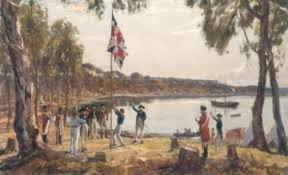
A gallows lament by young convict
Sydney cove, June 24. Samuel Payton, a 20-year-old convict, who will die on the gallows tomorrow for attempted robbery, has sent a most moving letter to his mother.
"My dear mother! With what agony of soul do I dedicate the last few moments of my life, to bid you an eternal adieu! My doom being irrevocably fixed, and ere this hour tomorrow I shall have quitted this vale of wretchedness. I have at last fallen an unhappy, though just, victim of my follies.
Banish from your memory all my former indiscretions and let the cheering hope of a happy meeting hereafter console you."
A woman convict is hanged for robbery
Sydney Cove, Nov 23 Ann Davis has been hanged, the first women in the colony to be "turned off" by the executioner.
She was found guilty of stealing clothing and goods from the house of convict Robert Sidaway, who co-habituated there with Mary Marshal. Davis was in the habit of calling by and smoking a pipe with them.
When they were away on November 14 she gained access through a window. After upsetting a tub of water in the house, she made off with her booty. It was later found in her possession.
Convict woman writes of life in 'this solitary waste of creation'
Norfolk Island, Nov 19 The plight of convict women has been described in a letter which has been privately sent in a ship today.
A convict woman writes of "our disconsolate situation in this solitary waste of creation."
"The inconveniencies... suffered for want of shelter, bedding etc are not to be imagined by any stranger. However, we have now two streets in four rows of the most miserable huts you can possibly conceive of deserve that name."
The women are "deprived of tea and other things.... and as they are all totally unprovided with cloths, those who have young children are quite wretched."
"Several women, who became pregnant on the voyage, and are since left by their partners, who have returned to England, are not likely to form any fresh connections."
"We are comforted with the hopes of a supply of tea from China, and flattered with getting riches when our settlement is complete."
"Our Kangaroo rats are like mutton, but much leaner; and there is a kind of chickweed so much in taste like our spinach. Something like ground ivy is used for tea; but a scarcity of salt and sugar makes our best meals insipid."
"The separation of several of us to an uninhabited island was like a second transportation. In short, everyone is so taken up with their own misfortunes that they have no pity to bestow on others."
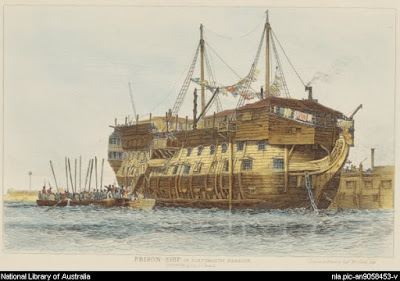
Deaths and Mutiny on convict vessels provoke a scandal
Sydney, August 9. Despite the past disgraces of convict ships, and the regulations and warnings designed to improve their condition, two more vessels have arrived at Sydney in deplorable state, and with awful death rates.
The Hercules arrived on June 26 with the news that 30 convicts had died on the voyage and another 11 had been killed during a mutiny, with two dying later of their wounds and a third being summary executed by the captain.
The Atlas arrived on July 6, having lost 68 people through scurvy and dysentery.
Governor King described the ships as being "filthy beyond description. Some convicts were lying dead with heavy irons on, while many more died as they were coming to the hospital."
There has been an inquiry as to whether the masters had contravened their charters as convict carriers. The Governor noted that the Atlas was carrying liquor.
Description of an old crawler
Tasmania 1872 He had always been escaping, always rebelling, always fighting against authority and always being flogged. There had been a whole life of torment such as this, forty two years of it, and there he stood, speaking softly, arguing his case well and pleading while the tears ran down his face for some kindness, for some mercy in his old age. 'I have tried to escape, always to escape', he said, 'as a bird does out of a cage. Is that unnatural? Is that a great crime?'
Escape foiled in Timor
Koepang, Oct 5. Captain Edward Edwards has made a remarkable catch. He has captured a party of 11 convicts, led by William and Mary Bryant, which escaped from Sydney Cove on March 28.
These escapees, despite having navigational skills, suffered incredible hardships before arriving in Timor.
The story they told of their 3,254 mile journey over 69 days, was equally memorable.
It appears that they first got the idea of heading so far north after hearing about the success of Captain William Bligh who sailed across the pacific in a longboat after the Bounty mutiny.
Ironically, Captain Edwards, aboard the Pandora, had been commissioned to hunt the mutineers. After his vessel was wrecked he took longboats to Timor, putting him on the scene to take custody of the convict group.
On the way north up the coast, the convicts met hostility from local aborigines, and were caught in a great gale, which whipped up the oceans "mountains high". At times, though, they were able to land safely to rest, eat fresh food and replenish their fresh water.
The exact points of their landings are uncertain, but it is believed they sailed to the mouth of a fine river, and discovered deposits of coal.
They eventually crossed the Arafura Sea, passed the southern part of Timor to Koepang.
They told the local authorities that they were survivors of a shipwreck and were given fine hospitality by the Dutch Governor.
But one talked to much and the Governor arrested them. They are in chains awaiting their return to England.

One convict describes the aftermath of a flogging:
unless it were at the meal Hours or at Night he was immediately sent to work, his back like Bullocks Liver and most likely his shoes full of Blood, and not permitted to go to the Hospital until next morning when his back would be washed by the Doctor's Mate and a little Hog's Lard spread on with a piece of Tow, and so off to work...and it often happened that the same man would be flogged the following day for Neglect of Work.
Floggings deplored by Aborigines
May 30 1791, the ferocity of British justice has shocked the Aborigines. The Governor wants to prove to them that their possessions are to be respected, and that any convict stealing from them can expect a harsh penalty.
Only this month a convict who stole fishing tackle from Daringa, wife of Colbee, was severely flogged in the presence of as many Aborigines of both sexes as could be assembled. The reason for the punishment was explained to them.
The Aborigines expressed abhorrence of the punishment, and sympathy for the sufferer.
Humanists deplore floggings
March 31 1823, the more humane members of the colony are horrified by the continuing practice of Convicts being flogged until they confess to alleged crimes. The latest among a large number of prisoners known to be treated thus is Henry Bayne, who has been sentenced to receive 25 lashed every morning until he tells "where the money and property is, stolen from the house of William Jaynes". Bayne insists he is innocent.
Concerned people are planning to report the practice to the authorities in Britain, in the hope it will be investigated.
Unique class system keeps the colony divided against itself
Jan 31 Deep divisions exist within New South Wales, greatly adding to the burden of being a people isolated at the bottom of the world, and therefore needing more than ever to live together in harmony.
Historically, the greatest rift has been between the "exclusives" and the "emancipists". The first group believe that anyone who has come to the colony in penal servitude is never capable of complete redemption. These people, who tend to be among the wealthy landowners, thus see themselves as a superior class. For their part, the emancipists, who are all ex-convicts, are concerned with equality of human rights.
Governor Macquaire, much to his peril, supported the emancipist cause, despite opposition from the forces which believed it would end respect for the law by allowing ex-convicts the normal rights of British citizens.
Since the Bigge inquiry, though, the colony has been re-established much more firmly as a prison rather than for reform, which has only worsened the tension.
As well, the emancipists are divided, between those who committed crimes at home, and in Australia.
This reflects a third division, being "Sterling", a name for the British-born, and the "Currency", the home-grown population.
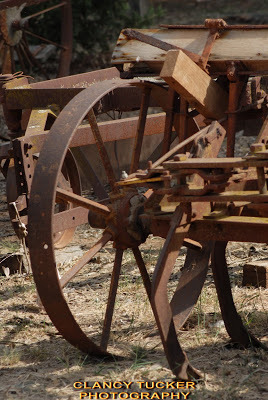
 Convict describes flogging of another Convict
Convict describes flogging of another Convict"There was two floggers, Richard Rice and John Jonson, the Hangman from Sidney. Rice was a left handed man, and Jonson was right-handed, so they stood at each side and I never saw two trashers in a barn moove their stroakes more handeyer than those two man killers did .... as it happened I was to leew'rd of the floggers and I protest ........ Next was tyed up paddy galvin, a young boy about twenty years. He was ordered to get 300 lashes.
He got one hundred on the back and you cud see his back bone between his shoulder blades, then the doctor order him to get another hundred on his bottom. He got it, then the doctor order him to be flog on the calves of his legs. He never gave so much as whimper. They asked him where the pikes were hid, he said he did not know, and if he did he would not tell. "You may as well hang me now," he says for you will never get any musick from me". So they put him in the cart and sent him to the hospital."
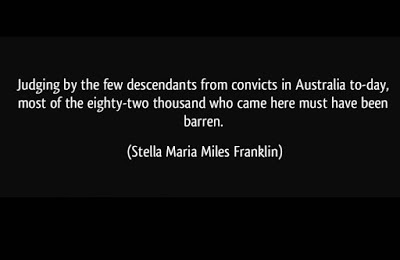
Journalist describes flogging
The floggings are hideously frequent. On flogging mornings I have seen the ground where the men stood at the triangles saturated with blood, as if a bucket of blood had been spilled on it, covering a space three feet in diameter, and running out in various directions, in little streams two or three feet long....
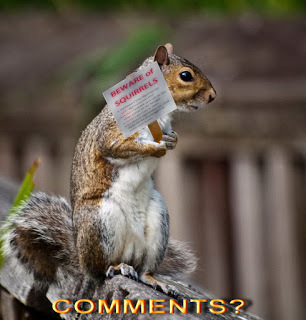
Clancy's comment: I loved studying this when I was a kid. I also loved checking out old houses and buildings where convicts were kept. In all of my readings about early life in Australia, I often wondered how the convicts felt when they arrived on the driest continent on earth.
I'm ...
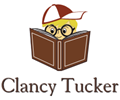
A photograph taken for a cover of a future book I'm working on: "Irish Gold'

Published on May 20, 2016 17:12
May 19, 2016
20 May 2016 - TEODORA CHINDE - Guest Illustrator

TEODORA CHINDE- Guest Illustrator -
G'day folks,
Welcome to my interview with a professional illustrator and digital artist from Romania. Check out her amazing works of art.
Welcome, Teodora ...
1. TELL US A LITTLE ABOUT YOURSELF AND YOUR ILLUSTRATING JOURNEY.
My name is Teodora ( Teo for short) and I am an illustrator. I am sarcastic person with a passion for the creative field.
2. WERE YOU GOOD AT DRAWING AS A KID?
I personally never thought I was, but everybody else seemed to think so. As a child, I never took drawing seriously, it was just my favourite pass time, but I always did enjoying creating things. My family had always been very supportive of my drawing and doodling around, but I just didn’t feel it as something I was actually good at.
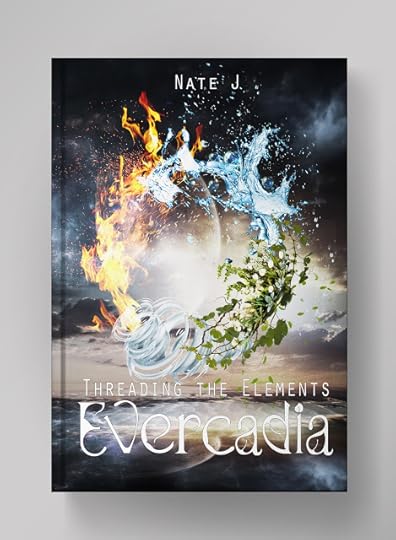
3. WHEN AND HOW DID YOU BECOME AN ILLUSTRATOR?
I could say almost by accident. When I was growing up I didn’t believe a career in illustration would be possible for me. I always though being an artist was synonymous with not having a good job or not being able to afford a comfortable living. I really did buy into the “starving artist myth”. Strangely enough nobody ever told me I would end up a starving artist if I went on this path. Everybody was very supportive. I was the only one who wasn’t supportive of myself.
As a result, I ended up going to law school. At that time I liked the idea of being a lawyer. I always loved and still do to this day, a good debate.
I had a very idealistic vision of what lawyers do. I thought they were nights of justice.
But as the studying years went by, I liked it less and less. I kept drawing but I still couldn’t see a way that could be my job. The more law I studied, the less I drew.
I don’t think I ever considered it seriously. Then my last year of law school came and I had an epiphany. I realised I was really miserable and that I was setting myself up for more misery in my adult life. Right then I decided that I will not allow that. So I finished law school and then quit the idea of law cold turkey. I didn’t have any plans at that point or any backup, but I just knew I couldn’t go down that path anymore.
All my friends at that time, most of them from law school, told me I had lost my mind, that I was nuts giving up law, that I would fail and that I should start thinking of a law master degree and to stop fooling around. I ignored all of them and even cut tied with them after a few months. I never looked back and it was one of my best decisions.
And then came salvation in the form of a magazine article my mother gave me. It was a business magazine and the topic was freelancing. There were interviews with successful freelancers and tips on how they made it. I took it as a sign and started freelancing that very week. Needless to say, I haven’t stopped since.
4. WHAT DO YOU ENJOY MOST ABOUT BEING AN ILLUSTRATOR?
I love the creative freedom and making ideas come to life. It makes me feel like an inventor. I take a concept or an idea that exists only in the realm of imagination and bring it a step closer to reality by putting it on paper. It is one of the best things I can think of. I also enjoy the freedom it gives you and I am not just talking professionally. You get to be as wacky as you want, come up with the most insane things, be wild, be crazy and nobody is going to be surprised or judge you. You are an illustrator, it’s your job to be wacky occasionally.
5. WHAT IS THE HARDEST THING ABOUT BEING AN ILLUSTRATOR?
I would have to stay inspiration dry spots. Also you always have to be on your toes. It takes a lot of practice. You are always learning. This can be difficult sometimes, but it is also the best part. Creative work is always fluid and you need to treat it as such.
6. DO YOU WORK FOR YOURSELF, OTHERS OR BOTH?
I work for myself. At this point I am turning the freelancing gig into a full time business and I am running it as such. I do not see it as working for other, more like working with others. At the end of the day I am my own boss but the client will always be the supreme boss. This does not change, even in the creative fields.
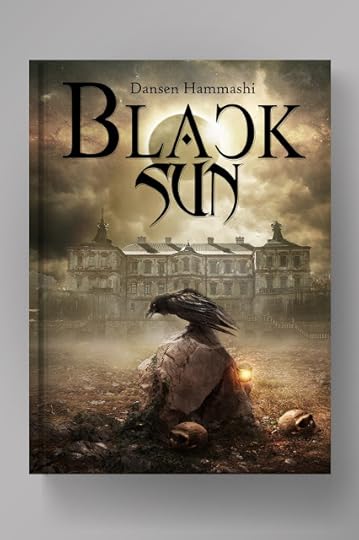
7. WHAT WERE YOU IN A PAST LIFE, BEFORE YOU BECAME AN ILLUSTRATOR?
I think I was still an illustrator. Some things you never cease to be. If not an illustrator, possibly a doctor or healer. I have very little tolerance for human suffering and I would like to see it disappear from the face of the earth.
8. WHAT IS YOUR GREATEST ACHIEVEMENT?
I would have to mark 2 different ones here. I am happy I managed to drop a career that would have made me unhappy in the long run, although almost everybody told me I was crazy giving up law and the safety net that came with it.
And I am proud that I managed to become a successful freelancer in an international market, where competition and skill are the norm. When I started I had no serious portfolio, nor professional experience in the field since I always treated it like a hobby. And in 1 year I was a top rated freelancer.
9. WHAT ARE YOU WORKING ON AT THE MOMENT?
At this moment, I am focusing on some personal projects, but I am also building a tarot deck for somebody. This is turning out to be a really fun project. I am looking to have my own exhibition this year and also start marketing my non-freelancing related work internationally.
10. WHAT IS YOUR FAVOURITE MEDIUM?
Photoshop and freehand. I also love painting on glass, but I rarely get a chance to do it these days. Plus it is always terribly messy, I always end up washing paint out of my hair and eyebrows.
11. WHAT INSPIRES YOU?
I draw my inspiration from nature and music. Movies are also really good for inspiration. I guess it depends on what draws my eye first. I am also a huge fan of reading. I have full reading days, when I just hit a tea house with a book and leave around closing time. I find it is a great way to connect with yourself.
12. WHAT DO YOU PREFER TO ILLUSTRATE?
My all time love is and most likely always will be anything surreal or fantasy related. I prefer bold colours and contrasts. I enjoy things that have a lot of detail if you look close enough, but that are a cohesive image if you look from further away. Surreal nature is my all time favourite thing. Although nature on its own is breathtaking, I always try to push it a step further.
13. DO YOU HAVE ANY TIPS FOR EMERGING ILLUSTRATORS?
I think I have a very long list of tips I could share. And I actually do share on my Linkedin page ( I think my most important tip would be to never give up illustrating or whatever creative activity you have. Even if it doesn’t work out as a full time job, you should never give it up. It is a part of you and who you are. I almost gave it up and felt hallow on the inside. Respect who you are and good things will come.
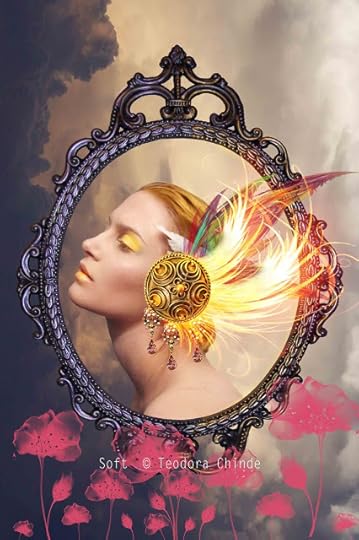
14. DO YOU SUFFER FROM ILLUSTRATOR’S BLOCK?
Yes, quite a lot actually. Thankfully I have productive days that compensate for the bad ones.
15. DO YOU HAVE A PREFERRED SCHEDULE?
I am desperately trying to be a morning person but I am a night owl. I prefer working evenings into the night. I am never productive in the morning and that is the timeframe with the most illustrator’s block. I don’t drink coffee, so not much backup there either. If I wake up early I cannot get through my day without a mid-day nap. I am just terrible when it comes to early mornings.
16. DO YOU HAVE A FAVOURITE PLACE TO ILLUSTRATE?
Not really. Anywhere I can sit comfortably and listen to music. If I were to imagine an ideal situation, it would be a big study with walls of shelves with art books that end in a big garden.
17. WHAT IS YOUR GREATEST JOY IN YOUR WORK?
This is a tricky one. What I do makes me very happy for multiple reasons. I am true to my passion and I can make a living out of it and also in the process I make people happy with what I make. I do not think it can get any better. At times I have found that people don’t really take illustrators or artists in general seriously. They think we just sit around in our underwear and waste time. But I don’t judge them, because I used to think like that about artists too (even though I was one). I just accept people as they are. I think this is also due to my new found freedom of creativity. When you are happy with yourself and with what you do, it is really hard to be angry at the world, even when the world is angry at you.
18. WHO IS YOUR FAVOURITE ILLUSTRATOR AND WHY?
This is a hard one too. I love the work of so many people. If I were to think in more traditional terms, I would say Alphonse Mucha. I love his style. I personally do not use it or try to use it, but I just love it. I find it very refreshing.
19. WHAT’S THE GREATEST COMPLIMENT YOU EVER RECEIVED?
“You might not actually end up a starving artist after all.” This was a bittersweet one, but I took it as a personal victory in the end. And yes, I did not end up a starving artist.
20. WHAT WAS THE WORST COMMENT YOU EVER RECEIVED?
“I hope your parents are ready to support you full time since there is no way you can make a living out of this stuff”. “ I could have something similar designed for 5$ on Fiver”. I still get this one at least once a month. But like I said, I no longer take things personal.

21. WRITERS ARE SOMETIMES INFLUENCED BY THINGS THAT HAPPEN IN THEIR OWN LIVES. ARE YOU?
I am definitely influenced, but I do not think it shows up in my artwork, at least not in any way an outsider would notice. But even if I had the worst time, it would not show up in my work. My work shows things as how I would want them to be, not how they are.
22. HOW MANY BOOKS HAVE YOU ILLUSTRATED?
I admit at this point I have lost track.
23. HAVE YOU WON ANY PRIZES OR AWARDS?
Not yet. Hopefully someday I will, but it is not something that I consider important at this point. I am more focused on building the business, networking, connecting with people and spreading creativity and fun as I go along.
24. WHAT DID THEY MEAN TO YOU?
Nothing yet.
25. OTHER THAN DRAWING, WHAT ELSE DO YOU LOVE?
I love small things. I love spending time with my family and friends, I love the beach and the sea and anything that has to do with nature (except for bugs). I love archery. I have a bow and play Robin Hood around the yard, or better said….I play Merida around the yard. I love drinking tea on my comfy couch while pondering random thoughts. I enjoy alone time but I also love every second I get with the people that I love.
26. WHAT WOULD YOU SAY TO ALL WORLD LEADERS IF YOU HAD THE OPPORTUNITY?
Stop arguing among yourselves, there are more important issues to solve.
27. DESCRIBE YOUR PERFECT DAY.
I wake up to the sun shining through my window. I have my morning tea while listening to zen music playing in the background. I would get my work for the day done and then go for a long walk in the park…..and probably more tea at the end of the day.
28. WHAT ARE YOUR PLANS FOR THE FUTURE?
I avoid making plans on a long term. I am always curious what the future will bring me and I try not to fight it too much. I go with the flow. Swimming against the current has never worked out for me.
29. HAVE YOU MET SOME GREAT PEOPLE ALONG THE WAY?
Yes, I think I meet great people around every corner. I have learned something from everybody I know. Most people I have met are amazing, yet they make an effort to hide it or tone it down, or they are so used to being told they are nothing special that they end up believing it.
30. ANYTHING YOU’D LIKE TO ADD?
I consider myself very lucky and I am very thankful that I get to do what I want to do. I understand that not everybody can scrap everything and start again, some are even worst off and have nothing to scrap to begin with. That is why I thank my lucky stars every day and I try to give back.


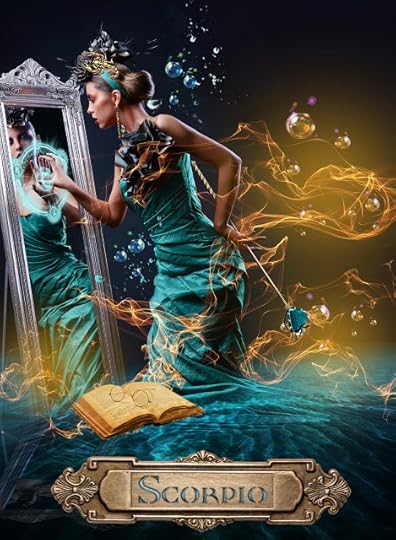

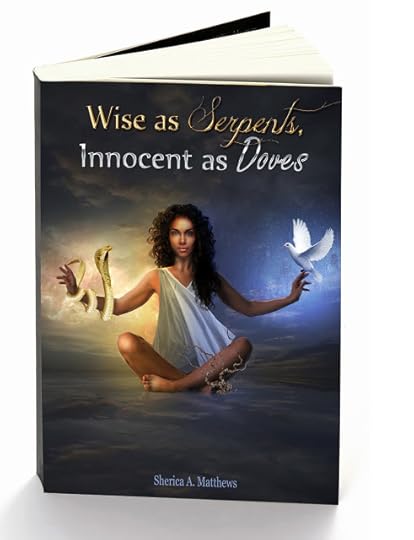

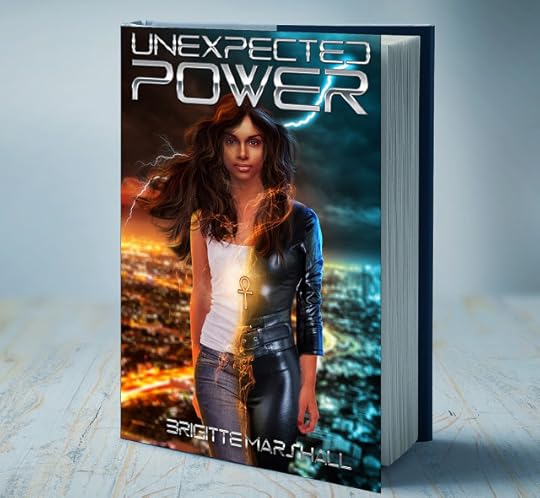

You can find on FB at Teodora Chinde Art or Linkedin or on my personal website www.coversought.com
Also I have a portfolio on carbonmade : https://teodorachinde.carbonmade.com/
If you need anything, please feel free to drop me a message. I do not bite ^ ^.
WEBSITE:

Clancy's comment: Thank you, Teodora. Great work! The book covers are stunning.
I'm ...


Published on May 19, 2016 15:28
May 18, 2016
19 May 2016 - GREAT AUSSIE QUOTES

GREAT AUSSIE QUOTES
G'day folks,
Welcome to some quotes made by some famous ... And infamous Australians.
Never complain, never explain (personal motto of Kerry Packer - billionaire)
A determined soul will do more with a rusty monkey wrench than a loafer will accomplish with all the tools in a machine shop (Robert Hughes - art critic and author)
Winning needs no explanation, losing has no alibi (Greg Baum - journalist)
The bigger the hat, the smaller the property (Australian proverb)
A champion team will always beat a team of champions - (Early Collingwood Magpies teams)
Where there are Torres Strait Islanders there is a community - (Bill Stephens)
I like villains because there's something so attractive about a committed person -- they have a plan, an ideology, no matter how twisted. They're motivated. (Russel Crowe - actor)
It's Australian to do such things because, however uncivilised they may seem, it's human to do them. (Hugh Mackay)
Unless you're willing to have a go, fail miserably, and have another go, success won't happen (Phillip Adams - journalist)
As a leader you must celebrate life, you must celebrate success and paradoxically, you must celebrate heroic failures (Lieutenant General D.M. Mueller)
All our best heroes are losers (Richard Glover - radio presenter)
There are people who wish to draw attention to themselves by attacking me (Don Bradman - cricket player)
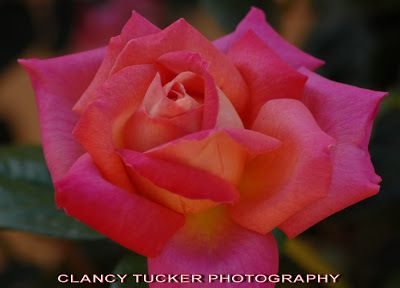
Always back the horse named self-interest, son. It'll be the only one trying (Jack Lang - Labor premier)
As a work of art, it reminds me of a long conversation between two drunks (Clive James)
I've never seen anyone rehabilitated by punishment (Henry Lawson - poet)
The true Aussie battler and his wife thrust doggedly onwards: starting again, failing again, implacably thrusting towards success. For success, even if it is only the success of knowing that one has tried to the utmost and never surrendered, is the target of every battler (Michael Page & Robert Inapen - authors)
If the section cannot remain here alive, it will remain here dead, but in any case it will remain here. Should any man through shell-shock or other cause attempt to surrender, he will remain here dead. (Lieutenant F.P. Bethune -clergyman by trade)
It's dead easy to die; it's the keeping on living that's hard (Douglas Mawson - Scientist and polar survivor)
You never want an Australian with his back against the wall. You put any 12 blokes together and you'll get a job done. Whether it's getting a bogged four-wheel-drive off the beach or standing in front of a cricket wicket and making sure we're in a dominant position. It's the same dog, different leg action, so to speak - (Matthew Hayden - cricket player)
Not lip service, nor obsequious homage to superiors, nor servile observance of forms and customs...the Australian army is proof that individualism is the best and not the worst foundation upon which to build up collective discipline - General Monash
We are not so much as disillusioned but illusion free (Miranda Devine - journalist)
May as well be here we are as where we are (Australian Aboriginal saying)
A Platypus is a duck designed by a committee (anon)
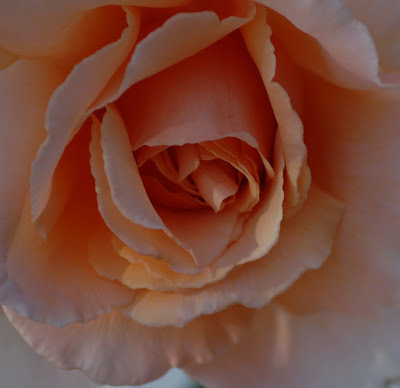
Do you know why I have credibility? Because I don't exude morality (Bob Hawke - Prime Minister)
It's no good crying over spilt milk; all we can do is bail up another cow (Joseph Chiefley - Prime Minister)
The twentieth century has been characterized by three developments of great political importance: the growth of democracy, the growth of corporate power, and the growth of corporate propaganda as a means of protecting corporate power against democracy - Alex Carey
Nationalism is both a vital medicine and a dangerous drug (Geoffrey Blainey - Historian)
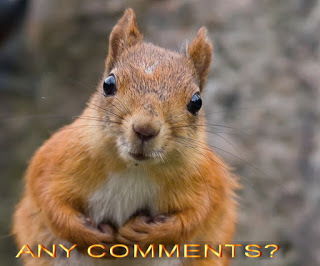
Clancy's comment: There ya go folks. Hope you understood what was meant.
I'm ...
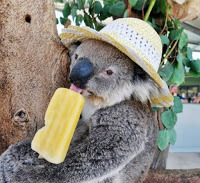

Published on May 18, 2016 15:43



